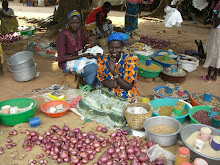
To piggy-back on the ‘why sudan?’ post, here’s an informational article, titled ‘Sudan: One Teacher to 100 Pupils’ that details the current status of government-funded education in South Sudan. http://bit.ly/83EoL In most developing/war-torn nations, the need for education, healthcare, etc. far outweighs the government’s ability to provide these services and the people’s ability to pay for them. South Sudan, of course, is no exception.
Currently, in South Sudan, government schools boast a ratio of 100 students to 1 teacher, with highly under-qualified yet also underpaid teachers, and a lack of adequate materials and curriculum. In fact, one of our Sudanese friends referred to government education in her area as, “little more than baby-sitting”. And, although school fees to attend government-funded schools are relatively low (compared to private schools), students are also left responsible for paying for their own uniforms, materials, school supplies, and lunches. These costs can be a financial strain on their families and in some cases prevent the children and young people from attending school altogether.
So, what does this have to do with microfinance? Well, beyond the basic statement that these statistics definitely qualify South Sudan as very poor, this sub-par access to viable education actually has everything to do with microfinance...
Across the South, non-governmental organizations (NGO’s) and other religious organizations are popping up with a mission to provide more access to better education for young Sudanese. (In fact, e3 Partners Sudan has started a privately run primary school in Kajo Keji, where Seed Effect is launching. For more information about the school, visit www.sudanfootrace.com) Although they offer a much better curriculum and opportunity for the students, education, whether it is government funded or private, is never free and can run up to $300 a year per child depending on the access and quality of the school. (Remember, as of 2006, statistically, 90% of southern Sudanese live on less than $1 a day- $300 per year per child is unrealistic for the majority of the South.) With access to microloans and business training, however, parents can invest in their business, generate a higher income, and provide financially for their families. Microfinance, in effect, has a generational impact. So, at Seed Effect, we plant the seeds that overcome poverty- both now and in the future of the next generation.
(Photo of e3 Primary School children at lunchtime. For many of these kids, this is the only meal they'll receive that day.)













